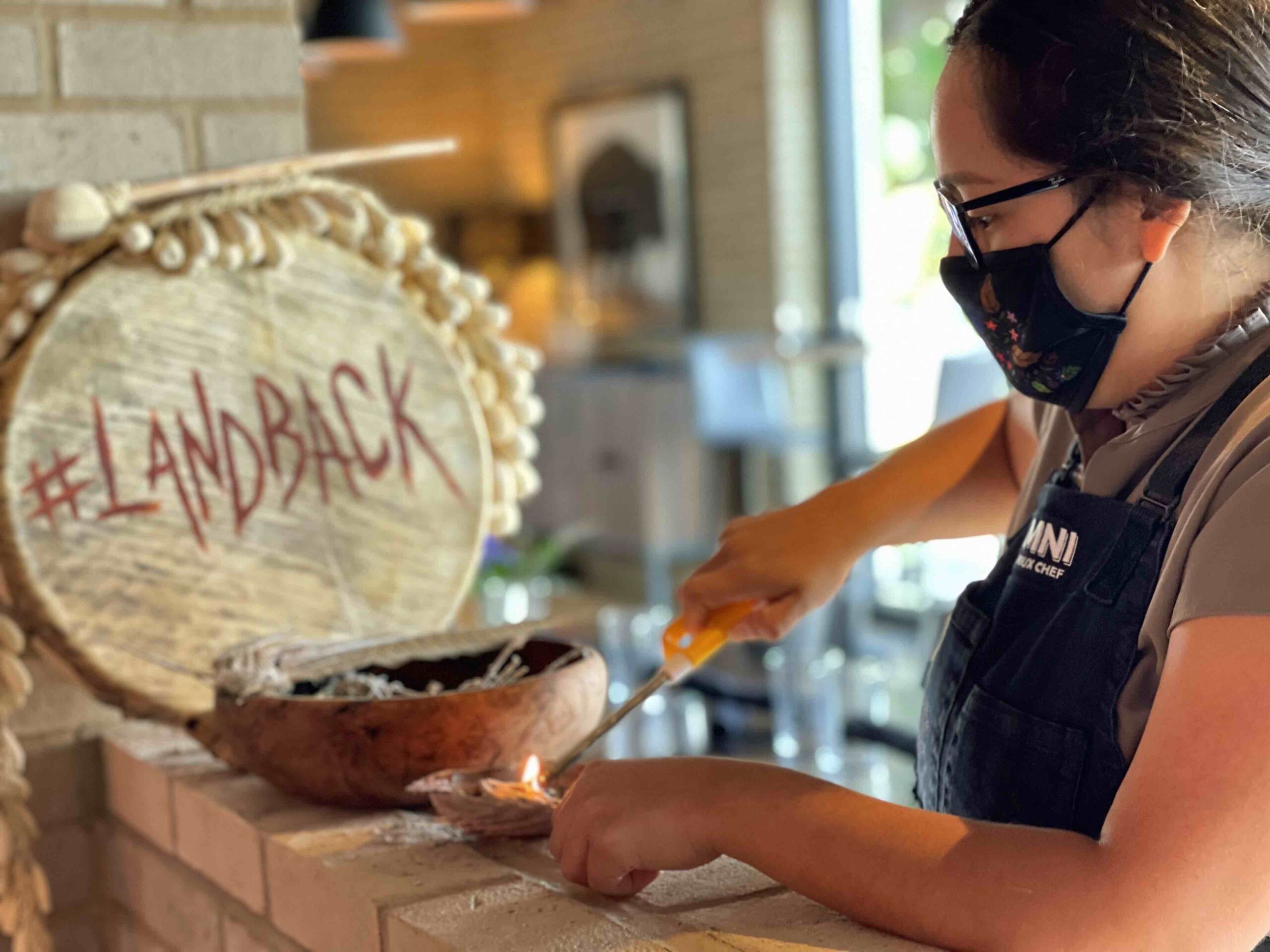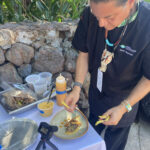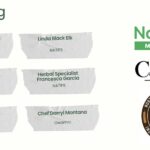MINNEAPOLIS — North American Traditional Indigenous Food Systems (NATIFS) announces its acquisition of the James Beard Award-winning Minneapolis restaurant Owamni.

Through this acquisition, NATIFS will expand its reach and impact, furthering Chef Sean Sherman’s vision to promote Indigenous culinary heritage and commitment to reclaim Indigenous food sovereignty and transform North American Indigenous food systems.
Chef Sherman’s journey, over years of engagement with tribal communities nationwide, culminated in the founding of NATIFS in 2017 and Owamni in 2021. His original vision was to create a replicable hub with a full-service training restaurant, a professional Indigenous kitchen for entrepreneurs, and a multifunctional classroom and demonstration studio to revive and redefine Indigenous culinary practices.
The Indigenous Food Lab kitchen opened in 2020. Also in 2023, NATIFS unveiled the pilot Indigenous Food Lab Market in Minneapolis, showcasing products from more than 30 Indigenous purveyors and featuring a hot food bar and grab-and-go items, and our education studio is beginning programming.
The original pre-pandemic vision for the NATIFS Indigenous Food Lab included a full-service restaurant to create jobs, provide hands-on training opportunities, increase demand for product from Indigenous food producers, and help with cash flow for programming. This announcement marks a final realization of Chef Sherman’s plans and opens the door to increasing food access and empowering enterprise development by reproducing this model throughout Indigenous communities in North America. “Moving Owamni into the NATIFS family fulfills the original vision, making the longevity of Owamni more possible while focusing on mission over profit,” says Chef Sean Sherman, founder and executive director of NATIFS. “This acquisition seamlessly integrates into our broader vision, offering new possibilities for guest chef events, exchanges, and the expansion of Owamni into a training center. By multiplying Indigenous food opportunities, we can drive direct economic development benefits and improve access to nutritious foods in communities disproportionately affected by food-related health disparities. Owamni already uses many Indigenous-produced foods, so we can continue to build opportunities for Indigenous food-related enterprises to thrive.”
Revenue generated by Owamni will directly support programs benefiting Native people and communities. With this addition, NATIFS now employs more than 130 staff members through the different entities, with a majority identifying as Indigenous. “NATIFS transcends culinary boundaries; it is a catalyst for transformative change,” Chef Sherman adds. “We recognize the profound impact of Indigenous food opportunities, extending beyond economic benefits to address food-related health disparities and environmental injustices. By creating access to nutrient-rich, culturally relevant foods, we empower communities most affected to reclaim health, wellness, and a sense of belonging. By championing local foods, sustainable foraging, and regenerative agriculture, NATIFS has the potential to significantly reduce food waste, minimize food miles, and promote sustainable alternatives to the pesticide-dependent, monoculture commodity crops prevalent across North America.”
Owamni, which made its debut in 2021, was named Best New Restaurant in America in 2022 by the James Beard Foundation. Owamni is part of the acquisition of Ghost Dancer, LLC, which also includes the Tatanka Truck food truck. The Sioux Chef brand and trademark, formerly part of the LLC, will be retained by Sherman. Chef Sherman will continue to provide visionary and management oversight for Owamni as part of his role at NATIFS.
North American Traditional Indigenous Food Systems (NATIFS), together with the Indigenous Food Lab (IFL) and IFL Market, and now, Owamni and Tatanka Truck, is dedicated to addressing economic and health crises in Indigenous communities by revitalizing Native foodways. The organization envisions a new North American food system that generates wealth and improves health in Indigenous communities through food-related enterprises. For more information, please visit NATIFS.org.









